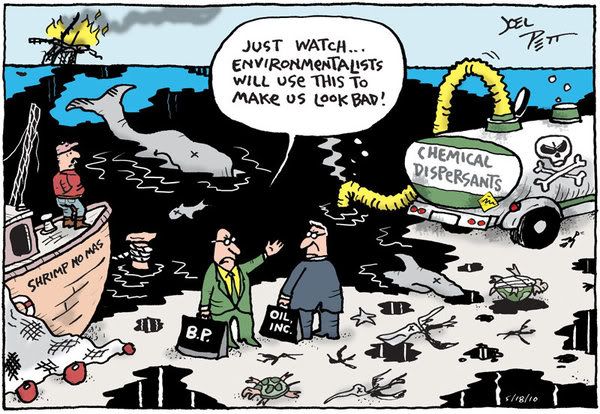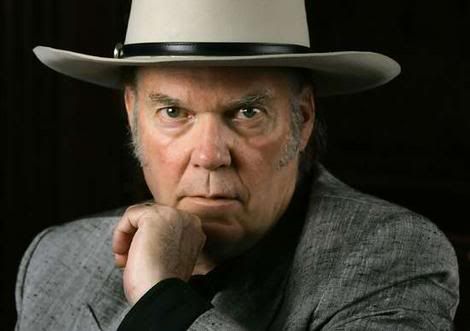Author's posts
May 22 2010
Blog Post
My words but a whisper — your deafness a SHOUT
I may make you feel but I can’t make you think
Your sperm’s in the gutter — your love’s in the sink
So you ride yourselves over the fields
and you make all your animal deals
and your wise men don’t know how it feels
to be thick as a brick
And the sand-castle virtues are all swept away in
the tidal destruction
the moral melee
The elastic retreat rings the close of play
as the last wave uncovers the newfangled way
May 21 2010
BP = Beyond Prosecution? “It Can Do Whatever It Wants and Won’t Be Held Accountable”
Four weeks ago today, British Petroleum’s Deepwater Horizon oil rig in the Gulf of Mexico exploded and sank, breaking the pipe connecting to the wellhead a mile below on the floor of the Gulf in Mississippi Canyon Block 252, referred to as the Macondo Prospect.
Former EPA Criminal Division Special Agent Scott West led a 2006 investigation of British Petroleum following a major oil pipeline leak in Alaska’s North Slope that spilled 250,000 gallons of oil on the Alaskan tundra. His story hopefully will not prove to be somewhat prophetic for BP’s prospects following the Deepwater Horizon environmental catstrophe, but it is very much worth hearing and reflecting upon.
As Jason Leopold wrote yesterday May 19 in a very detailed historical and investigative article at Truthout.org:
Mention the name of the corporation BP to Scott West and two words immediately come to mind: Beyond Prosecution.
West was the special agent in charge with the Environmental Protection Agency’s (EPA) criminal division who had been probing alleged crimes committed by BP and the company’s senior officials in connection with a March 2006 pipeline rupture at the company’s Prudhoe Bay operations in Alaska’s North Slope that spilled 267,000 gallons of crude oil across two acres of frozen tundra – the second largest spill in Alaska’s history – which went undetected for nearly a week.
West was confident that the thousands of hours he invested into the criminal probe would result in felony charges against the company and the senior executives who received advanced warnings from dozens of employees at the Prudhoe Bay facility that unless immediate steps were taken to repair the severely corroded pipeline, a disaster on par with that of the 1989 Exxon Valdez spill was only a matter of time.
In fact, West, who spent more than two decades at the EPA’s criminal division, was also told the pipeline was going to rupture – about six months before it happened.
In a wide-ranging interview with Truthout, West described how the Justice Department (DOJ) abruptly shut down his investigation into BP in August 2007 and gave the company a “slap on the wrist” for what he says were serious environmental crimes that should have sent some BP executives to jail.
He first aired his frustrations after he retired from the agency in 2008. But he said his story is ripe for retelling because the same questions about BP’s record are now being raised again after a catastrophic explosion aboard the Deepwater Horizon drilling rig killed 11 workers and ruptured an oil well 5,000 feet below the surface that has been spewing upwards of 200,000 barrels of oil per day into the Gulf waters for a month.
Today Amy Goodman and Juan Gonzalez of DemocracyNow.org interviewed Scott West about his experiences investigating and attempting to bring criminal charges against BP:
One month after the BP oil spill, we speak to Scott West, a former top investigator at the Environmental Protection Agency who led an investigation of BP following a major oil pipeline leak in Alaska’s North Slope that spilled 250,000 gallons of oil on the Alaskan tundra.
Before West finished his investigation, the Bush Justice Department reached a settlement with BP, and the oil company agreed to pay $20 million. At the same time, BP managed to avoid prosecution for the Texas City refinery explosion that killed fifteen workers by paying a $50 million settlement.
Fmr. EPA Investigator Scott West:
US Has Told BP “It Can Do Whatever It Wants and Won’t Be Held Accountable”
Democracy Now – May 20, 2010
Democracy Now’s rush transcript follows…
May 20 2010
BP’s Gulf Oil Leak 19 Times Larger Than BP & Gov’t Say?
The Real News Network’s Jesse Freeston interviews journalists at McClatchy’s DC bureau to for their latest on the Deepwater Horizon disaster. Journalists believe that BP and the Government may be hiding information on the severity of the leak. Those who fish for a living in the Gulf of Mexico are after BP for compensation. The central question yet to be answered to help resolve the question of how the explosion happened. And, the Cuban government is concerned but not vocal, given it’s own aspirations for deep sea drilling.
Real News Network – May 20, 2010
May 20 2010
BP = Beyond Prosecution
Mention the name of the corporation BP to Scott West and two words immediately come to mind: Beyond Prosecution.
West was the special agent in charge with the Environmental Protection Agency’s (EPA) criminal division who had been probing alleged crimes committed by BP and the company’s senior officials in connection with a March 2006 pipeline rupture at the company’s Prudhoe Bay operations in Alaska’s North Slope that spilled 267,000 gallons of crude oil across two acres of frozen tundra – the second largest spill in Alaska’s history – which went undetected for nearly a week.
West was confident that the thousands of hours he invested into the criminal probe would result in felony charges against the company and the senior executives who received advanced warnings from dozens of employees at the Prudhoe Bay facility that unless immediate steps were taken to repair the severely corroded pipeline, a disaster on par with that of the 1989 Exxon Valdez spill was only a matter of time.
In fact, West, who spent more than two decades at the EPA’s criminal division, was also told the pipeline was going to rupture – about six months before it happened.
In a wide-ranging interview with Truthout, West described how the Justice Department (DOJ) abruptly shut down his investigation into BP in August 2007 and gave the company a “slap on the wrist” for what he says were serious environmental crimes that should have sent some BP executives to jail.
He first aired his frustrations after he retired from the agency in 2008. But he said his story is ripe for retelling because the same questions about BP’s record are now being raised again after a catastrophic explosion aboard the Deepwater Horizon drilling rig killed 11 workers and ruptured an oil well 5,000 feet below the surface that has been spewing upwards of 200,000 barrels of oil per day into the Gulf waters for a month.
May 19 2010
Smoke On The Water Open Thread
May 19 2010
Deepwater Horizon Oil Leak to Loop Current Forecast – May 17 through May 21, 2010
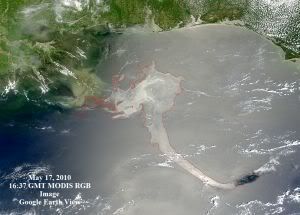 Video compiled from data produced by The College of Marine Science, University of South Florida, Ocean Circulation Group http://ocgweb.marine.usf.edu/
Video compiled from data produced by The College of Marine Science, University of South Florida, Ocean Circulation Group http://ocgweb.marine.usf.edu/
OCG/CMS/USF maintains a coordinated program of coastal ocean observing and modeling for the West Florida Continental Shelf (WFS).
The Deepwater Horizon oil spill trajectory ensemble forecast from four different numerical models – Modeling includes a West Florida Shelf version of ROMS nested in the Navy’s operational HYCOM. We are also diagnosing model output from the Navy’s HYCOM, from NCSU’s SABGOM ROMS, and also from the NOAA RTOFS.
http://ocg6.marine.usf.edu/~liu/oil_spill_ensemble_forecast.html
Embeddable: http://www.youtube.com/watch?v=6d53Y8t85bI
(about 1 minute 8 seconds)
May 18 2010
Something Happened?
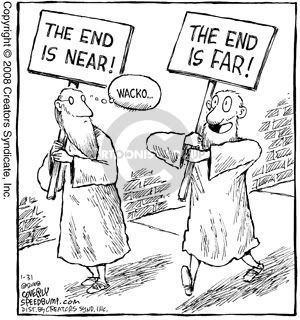
Something Happened
James Howard Kunstler
truthout op-ed
Tuesday, May 18, the year of the tiger
Everybody in the world is broke, except for maybe Lloyd Blankfein, and he may not end up broke so much as broken — by a political meat-grinder that is revving up to turn the world’s woes and swindles into a new kind of Long Emergency sausage, to be distributed among the roiling, angry masses as a synthetic substitute for nutriment. Call it a synthetic non-collateralized political obligation.
Something snapped in the world last week and a lot of people around the world sensed it — especially in the organs of news and opinion — but this ominous twang was not very clearly identified. It was, in fact, the sound of the financial becoming political. The macro-swindle of a worldwide Ponzi orgy now stands revealed and the vacuum left in its place is about to suck everything familiar into it — standards-of-living, hopes, dreams, not to mention lives. The political action will be a desperate scramble to determine who and what is able to escape getting sucked into this black hole of annihilation. It’s very suddenly shaping up to become an epic in human history.
Meanwhile, a giant oil blob lies quivering in deep waters off the Gulf coast, like some awful amorphous Moby Dick full of malice waiting to sink Pequod America — or at least the economies of five states. A few months from now, the BP corporation will wonder why it didn’t go into something safe and predictable like the pants business instead of oil exploration. They will surely question the viability of conducting future business anywhere near the USA, and the USA will enter a wilderness of soul-searching about the drill-baby-drill strategy that only a few scant weeks ago seemed to be a settled matter. Tough to have your future hoped-for energy supplies evaporate at the same time that your hopes for future prosperity get sucked into a black hole.
I’ve maintained for a long time that the folks down Dixie way are the the most dangerously crazy people in America and the Deepwater Horizon oil blob is not going to improve their outlook when it slops over their beaches and bayous. They’ll blame Obama for it by syllogism. Anyway, they are only marginally more crazy than the rest of the folks in the USA. Those folks are warming up for an election season that is going to send a horde of exterminating angels into the halls of congress and the governor’s mansions, and before too long those merchants of retribution are going to appoint their inquisitors. It’s going to be a heckuva spectacle.
[snip] [snip] [snip]
May 18 2010
How We Wrecked The Oceans, with Jeremy Jackson
Over the past few weeks since the BP Deepwater Horizon catastrophe has put the oceans and the environment at the center of our consciousness again, we’ve been hearing a lot about what the oil leak is doing to the Gulf of Mexico.
Juan Cole put it rather eloquently earlier this month in I want My Country back from Big Oil:
We need to end the hidden government subsidies for fossil fuels and make sure their true cost, including climate change, is built into them.
Moreover, we should be generating electricity from alternative sources or natural gas (of which we have a lot) and then moving to electric and hybrid automobiles. (Natural gas burns cleaner than petroleum or coal and is probably a necessary bridge fuel to the alternatives). Going to electric vehicles powered by natural gas, wind and solar plants would be cheaper than rebuilding all the gas stations in the country. Coal should be banned altogether and its use made a hanging crime.
And, we should be matching every penny of the cost of the Gulf clean-up with a huge government Manhattan project on solar energy.
The environmental and economic costs of the oil spill are enormous, but they are tiny compared to the costs of actually burning the oil and spilling more masses of carbon dioxide into the atmosphere. If you’re not alarmed about your future, it is because you have bought the cover-up of climate change, just as Obama bought a cover-up when he believed what he was told about the unlikelihood of oil spills from ocean platforms.
But something else which should probably be concerning us all is the condition our oceans are in, and have been in for many years, even prior to the oil gusher. We live in a much smaller and more fragile world than we tend to think we do, and our decades long mistreatment of our environment, our rivers, lakes and oceans, the dwindling fish and large ocean mammal populations are all very serious concerns.
Jeremy Jackson is the Ritter Professor of Oceanography and Director of the Center for Marine Biodiversity and Conservation at the Scripps Institution of Oceanography. Painting pictures of changing marine environments, particularly coral reefs and the Isthmus of Panama, Jackson’s research captures the extreme environmental decline of the oceans that has accelerated in the past 200 years.
Jackson’s current work focuses on the future of the world’s oceans, given overfishing, habitat destruction and ocean warming, which have fundamentally changed marine ecosystems and led to “the rise of slime.” Although Jackson’s work describes grim circumstances, even garnering him the nickname Dr. Doom, he believes that successful management and conservation strategies can renew the ocean’s health.
In this 18 minute talk from TED.com, Professor Jackson lays out the shocking state of our ocean today: overfished, overheated, polluted, with indicators that things will get much worse.
Jeremy Jackson: How We Wrecked The Oceans
TED.com May 2010
Full transcript below
May 16 2010
You May Never See It Coming?
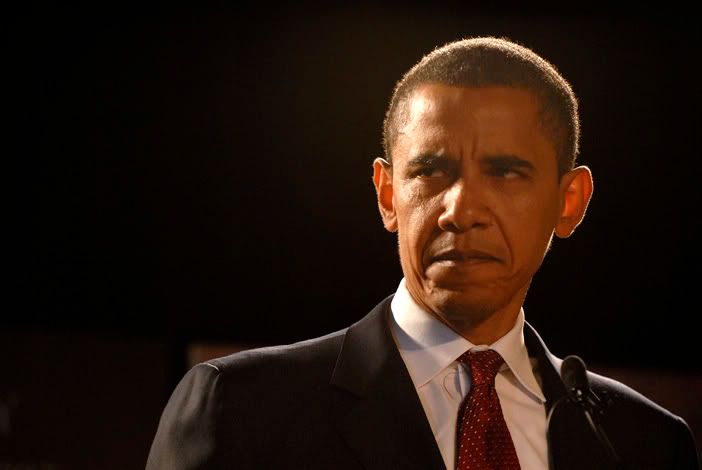
After a week away, here’s my advice: in news terms, you can afford to take a vacation. When I came back last Sunday, New Orleans was bracing for tough times (again). BP, a drill-baby-drill oil company that made $6.1 billion in the first quarter of this year and lobbied against “new, stricter safety rules” for offshore drilling, had experienced an offshore disaster for which ordinary Americans are going to pay through the nose (again). News photographers were gearing up for the usual shots of oil-covered wildlife (again). A White House — admittedly Democratic, not Republican — had deferred to an energy company’s needs, accepted its PR and lies, and then moved too slowly when disaster struck (again).
Okay, it may not be an exact repeat. Think of it instead as history on cocaine. The oil spill in the Gulf of Mexico, already the size of the state of Delaware, may end up larger than the disastrous Exxon Valdez spill in Alaska, and could prove more devastating than Hurricane Katrina. Anyway, take my word for it, returning to our world from a few days offline and cell phone-less, I experienced an unsettling déjà-vu-all-over-again feeling. What had happened was startling and horrifying — but also eerily expectable, if not predictable.
[snip]

